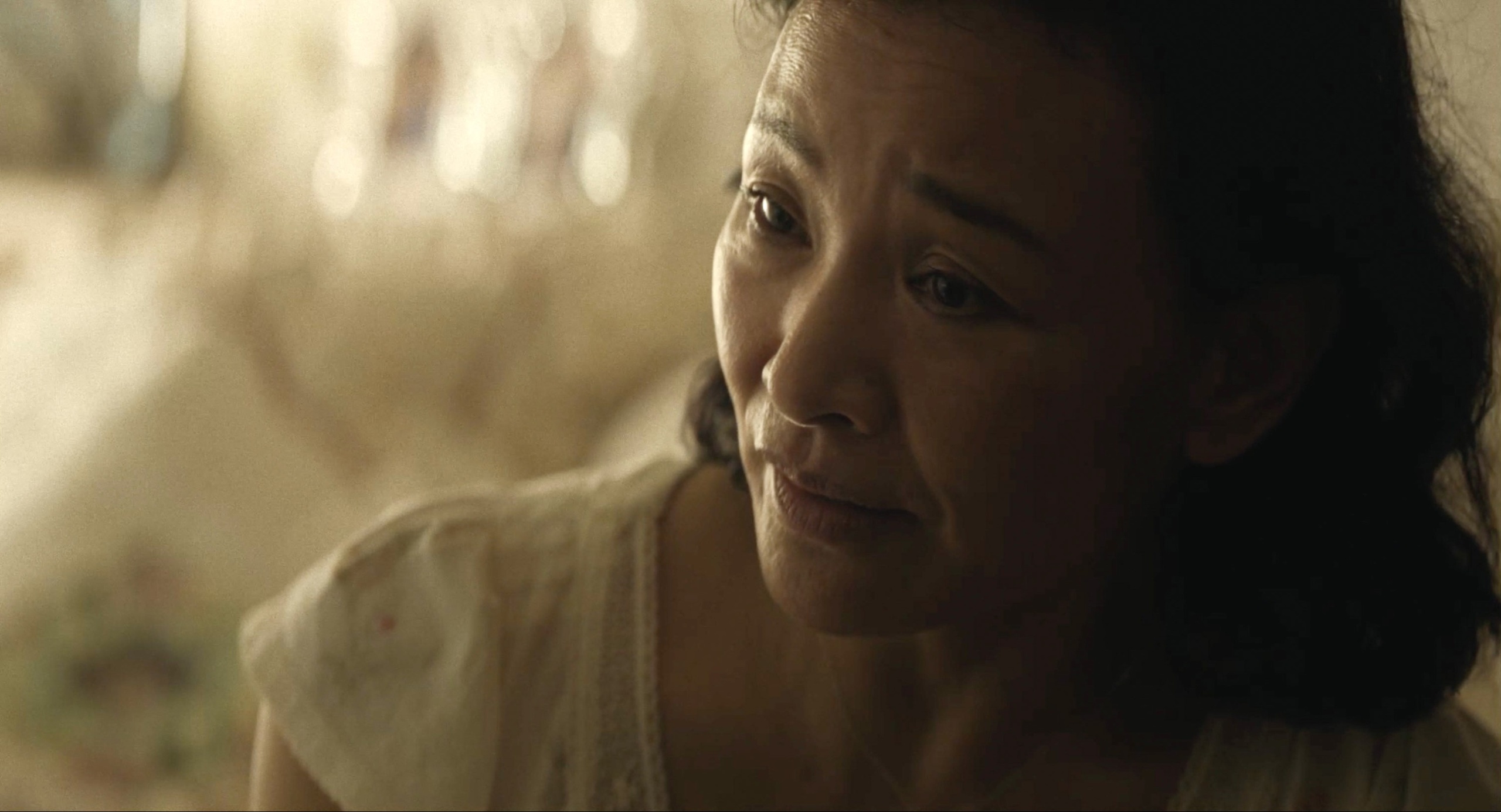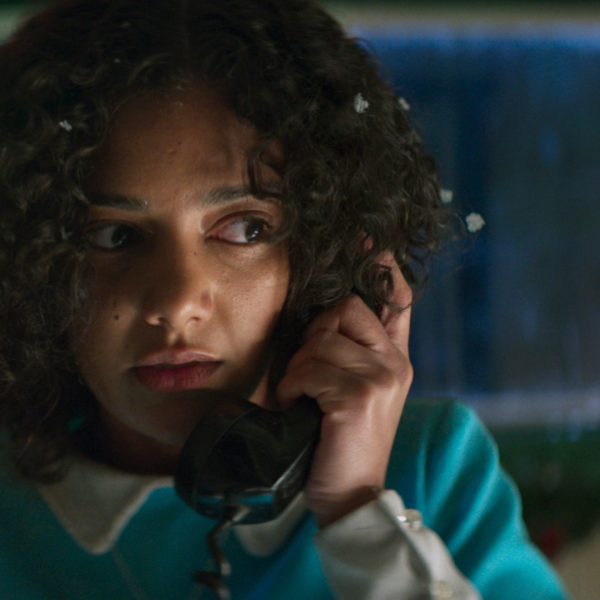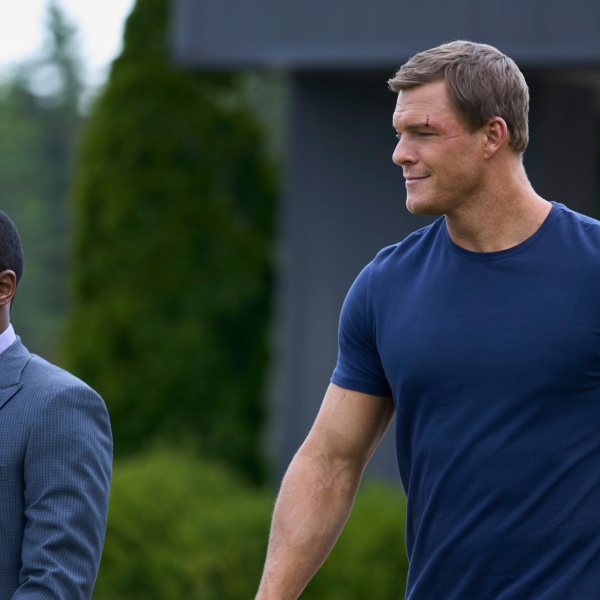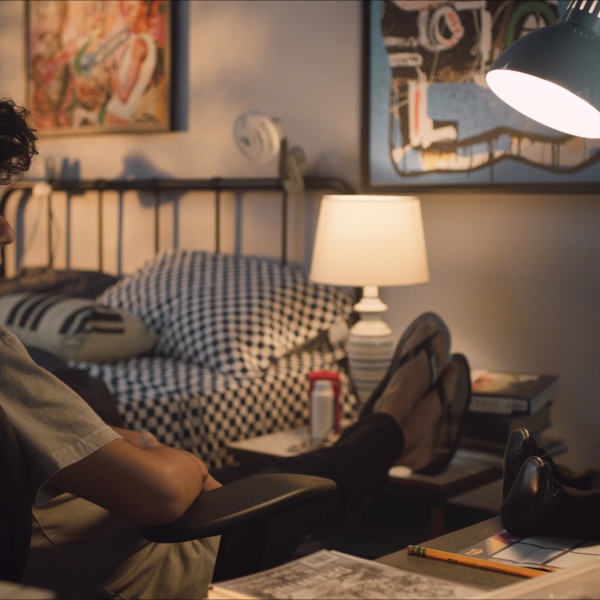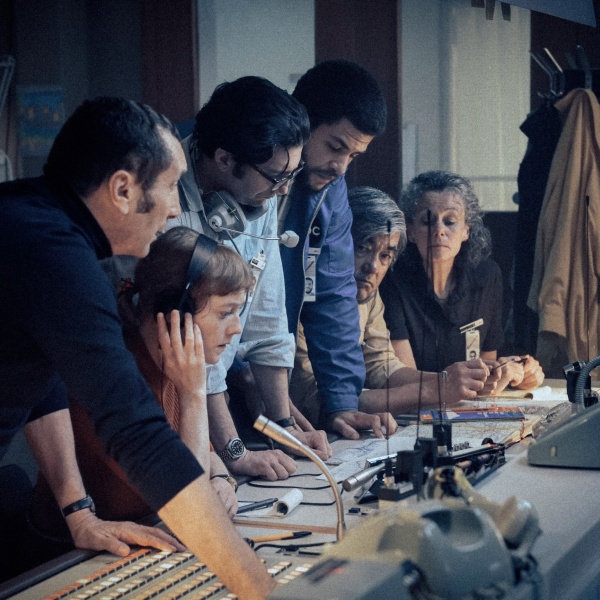Sean Wang’s “Dìdi” (Focus Features, July 26) hits where it hurts for any millennial who came of age in middle school in 2008 — on MySpace and AOL Instant Messenger and in the throes of puberty. But it’s especially hard-hitting for Taiwanese-Americans raised in the California Bay Area at the time, as Fremont-hailing writer/director Wang’s big Sundance winner (including an Audience Award) is based on his own youth — one where he was often recalcitrant toward his single mom.
In this frank and affecting dramedy, young actor Izaac Wang plays Chris, a 13-year-old spending the summer before his freshman year of high school surfing the web and making YouTube videos with his pals. Until he falls in with an older crowd he seeks to impress. In the seemingly endless summer between eighth and ninth grade, there’s a crush, too, he’s trying to woo — with embarrassingly dismal results. Back at home, the second-generation Chinese schoolkid Chris bats away the affections and concerns of his immigrant mother Chungsing (Joan Chen), deals with a torturing older sister Vivian (Shirley Chen), and shares space with his helicoptering paternal grandma. She’s played by Chang Li Hua, Wang’s actual grandmother, who makes her narrative debut here after featuring in Wang’s 2024 Oscar-nominated short documentary “Nai Nai & Wài Pó.”
Meanwhile, Chen, best known to many audiences for playing Josie Packard in the original run of “Twin Peaks,” gives her most touchingly realized performance yet as a single mother staring down the barrel of an eventual empty nest. (Chris and Vivian’s father is an absentee.) While trying to manage her chaotic household, Chungsing is also a painter with dreams of her own. And she, too, is confronted with Nai Nai’s constant nagging, a mother-in-law hovering over her every parental move. She’s a person with problems, too, just like her young son Chris.
Chen, born in Shanghai before immigrating to the U.S. with her parents, is a trained filmmaker as well as an actor. She studied filmmaking at California State University in Northridge before landing TV roles on series like “Miami Vice” and “MacGyver.” On the big screen, Chen has starred in movies with roles of varying sizes, including “Red Rose White Rose,” “Saving Face,” “The Home Song Stories,” and Ang Lee’s “Lust, Caution.” In 1998, she directed the ’70s-set Cultural Revolution drama “Xiu Xiu: The Sent Down Girl,” which won festival prizes, before she directed the critically derided Richard Gere/Winona Ryder romantic drama “Autumn in New York” in 2000. Chen has appeared in Chinese movies and American TV over the years since, along with directing two other Chinese-language features, but like Chungsing in “Dìdi,” she’s a mother of two, and her focus is also there.
“Dìdi,” which Chen also executive-produced, is a real showcase for the actress that should propel her into the indie awards conversation — and maybe further. There’s a heartbreaking scene in which she is pushed to nearly slapping Chris, who’s again being a willful brat to her well-meaning attempts to help him understand his coming of age. And another, a closing monologue in which Chungsing opens up to her son in a moment we all relate to: the moment you see your parents as just people, as flawed as you are, with aspirations and heartache, too.
IndieWire spoke with Chen ahead of the film‘s release in a conversation spanning her work on “Dìdi” and as a filmmaker.
This interview has been condensed and edited for clarity and length.

IndieWire: Does your experience as a director inform what happens when you get to set, or do you just surrender to a director like Sean Wang?
It is always the best, if I am only performing and not directing, to just submit myself to the director. There [have been] some occasions, once you started filming, and you’re like, “Oh my god, I cannot do that. I need to protect myself,” because you couldn’t fully put yourself in your director’s hands. You couldn’t fully trust him, and that would not be desirable. With Sean, fortunately, even though he is so young, and this was his first feature film, I felt quite immediately that I could put myself in his hands, that I could trust him. Subconsciously, because [I] have directed, it would influence you somehow, certain decisions. You become a more conscientious actor. With Sean, this is a script he started seven years before shooting. It’s lived with him. It’s very personal, somewhat autobiographical. I trusted him.
By the time you directed “Autumn in New York,” was filmmaking something you wanted to prioritize over acting?
In my entire acting career, I did do jobs just to get a paycheck. With directing, I don’t think I could do that. I must really have the urge and passion to tell a story. “Autumn in New York” was a teaching experience because I was just in love with the fact [of] being a Chinese immigrant woman [who] actually got this chance to direct this studio movie. Not out of the passionate urge to actually tell the story. That really taught me that’s not something I do so well. The film did make its money back, the box office was pretty good, but it was a critical failure. I see why.
“Autumn in New York” is a rare example of a filmmaker without studio experience suddenly getting tasked with making a studio movie. That might not happen now.
It was a rare chance they [the film was an MGM and Lakeshore production] took on me. Later on, I learned they couldn’t find the director. There was a director on the film, then somehow creatively, Richard [Gere] didn’t see things eye to eye with them, and so they left the picture. It was already summer. Autumn was right around the corner, and they really needed a director.
I did not know that when I first met with the producers. They were really struggling because if they missed this autumn, they wouldn’t know if they had Richard or Winona again. At that time, Richard was voted the whatever most attractive, sexiest man on whatever magazine. He was at the top of his game. They really couldn’t miss that autumn. Someone at Lakeshore saw “The Sent Down Girl” […] The two producers started just guffawing and we’re like, “Jesus, we’re desperate. We’re going to use a Chinese movie star who’s never done a studio picture.” In the end, they had to. When I entered into the picture, mostly all the elements were there already. I was airlifted to direct. There was not much I could do about the script [by Allison Burnett].

The first scene you shot on “Dìdi” is a tough moment with actor Izaac Wang, where Chungsing nearly slaps her son for speaking out against her. How did you just jump into that?
That was a bit of a challenge. They tested me, and said, “Oh, Joan, we really have to switch the days around.” It wasn’t planned that way […] As soon as I decided to do the part, Sean gave me lengthy interviews that he did with his mom, and so I know what her life is. The relationship is based on Sean and his own mom, and also as soon as I got the job, I had Sean’s mom record all the lines for me just as an interesting exercise to see if I could channel that other person whose story this was based on.
But you must have brought your own story as a Chinese immigrant to this film.
More importantly, the preparation was really my life because I am an immigrant mother who raised two American children. Both my children had very tumultuous adolescence, and we had so much drama. I’ve made so many mistakes in my life regarding being a mother. It’s not easy when this most intimate relationship is also fraught with cultural chasm, just because I really wasn’t sure of the ground I was standing on. So much confusion, misunderstanding, and unintended hurt. All of that was pouring out of me. My life prepared me more than anything else. Sean and I talked about that family dynamic and how what my absent husband [in the movie] meant to me. In my heart, as a character in the film, I am abandoned by my husband. He’s not in the picture to help me, and I am unloved and underappreciated. In the scene when my son tells me, “If it were my father, I could’ve been a better son, but I’m stuck with you.” And that really was hurtful. So it wasn’t all that hard to do that scene.

In this monologue Chungsing has toward the end of the film, she reveals her innermost desires in ways parents rarely do to their children. How do you prepare for that beyond just memorizing your lines?
At times you do feel underappreciated as a mother, that your best intentions somehow just weren’t brought to fruition in your children. It’s hard for any children to imagine that their parents had lived a very full, interesting, complex life before they existed. It was not something they could grasp right away. At that moment when I am telling Izaac about all this, I was imagining I was telling it to my own kids. We do make mistakes, and we hurt our children unintentionally, but we love them more than we love anybody else. Sometimes, that’s not felt or understood. We do need to feel fulfilled other than just being a mother […] we see in that scene, she so wanted to be accepted into a competition [for her artwork] and so values Chris’ opinion. I felt the same way. I needed to be validated by my children [in a way] I seldom get. I’m not blaming my kids. I know that most of the time it was my mistakes when there were these fraught times between us. But all that experience was in this scene.
In “Dìdi,” there’s code-switching in the dialogue that feels realistic to the Chinese immigrant experience. You speak Mandarin while your son speaks English back to you. Did that resonate?
It happens in my family. I speak Mandarin to my children, they speak English back. They do speak Chinese, but they prefer to answer to me in English. These parts felt very familiar to me.
“Dìdi” is now in theaters from Focus Features.
